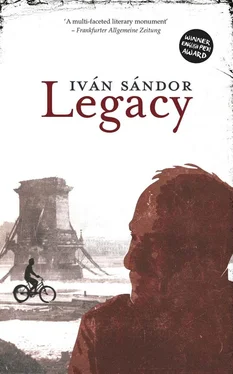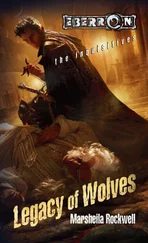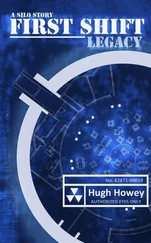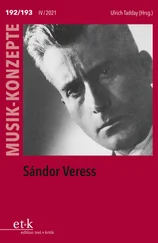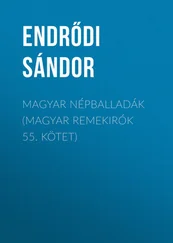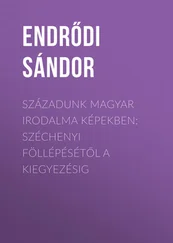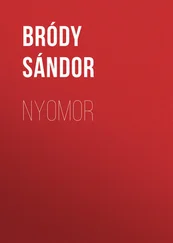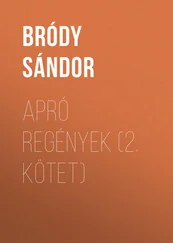Gizi now calls out Bőzsi’s name in the second shed.
She goes into the third.
This time she hears her own name.
Not a shout but a whisper.
Good God! Rosie!
Gizi … Gizi whispers, Mother.
Right away … at once … just a sec … hang on …
Gizi! Gizi! … The Róberts are also here …
The white-gowned lads come with stretchers.

The ambulances motor back towards Budapest, the Opel Kadett in front. Gizi is seated in the ambulance where my own mother and father are lying with ten others in a vehicle designed for six. She is clasping Mother’s hand, Mother Father’s. It’s possible Bőzsi has already been handed over at the border, but I hope she managed to escape on the way, says Gizi; heavens above, her hair is bound to be full of lice. Father is not right in his head. He looks up once and says, We shall work, dearest. Even in Germany.
We were lying on a barge at Szony, Mother says later, quite close to the water. All at once I sensed that your father was slipping on the wet planking on the deck, and I make a grab for him, but I was no longer able to reach him, although I dreamed that in the ambulance, says my mother for the umpteenth time. We are sitting in front of the television, and Zsuzsa Koncz is singing, throwing back her head, tidying her hair from her brow with that familiar gesture of the hand. My God! says Mother, although not because the gesture has reminded her, more because she has now forgotten what it is that the hand gesture reminds her of.
Three days later the leaders of the Hungarian army officers’ resistance are arrested. The next day, Gizi later tells Mother, when the generals were being escorted to prison, Károly was shot in the neck in the street by an Arrow Crosser for attempting to escape.
It is morning.
We are standing in the yard of the Great Synagogue on Dohány Street. We line up to orders given by a sergeant with an Arrow Cross armband. Two men with Red Cross armbands are standing behind us.
We are marching again.
Our procession is guided across the yard of the Dohány Street Synagogue.
I am unaware that my grandmother, whom I last saw sitting on her bedside searching for her slippers with her feet, is now in the cellar of one of the houses in the ghetto here, barely a couple of hundred metres away. Nor can I know that later she will be lying under a pile of earth just a few centimetres deep where ten bodies are buried in the places where I am now planting my footsteps. I learn that six weeks later, as Mother clutches my hand while she leans over the grave and reads the names off a piece of card attached to a stick. There will be at least fifty similar graves in the temple’s yard. At least thirty of us will read out at least three hundred names until we find Grandmother’s name. I don’t look back because under the archway through which I am passing, holding Vera’s hand, is a pile of ice-cold corpses heaped on top of one another.
Mother’s spectacles got broken on the highway; she has to lean right over to read out the names. She, too, is wearing boots and has difficulty walking in the mud.
There must be about thirty of us as the column turns on to Kaiser Wilhelm Avenue. Our pace is set by the sergeant with the Arrow Cross armband; sometimes we have to run.
It’s early in the morning but seems more like night.
We leave Andrássy Avenue.
I’m not familiar with these streets. It is as if we were moving along in a tunnel or a channel. Some light is on at the side. A curtain is drawn aside behind a ground-floor window of one of the houses. It is a young boy who might be seven or eight but who has the face of an old man. Wrinkled. He is not watching us but the sergeant at the head of the line. A hand also draws aside the curtain of the next window. The young boy now watches from there and, as if he were walking with us, he also glances at us from a third window.
Fifty-eight years later I set off from the Dohány Street Synagogue along the same route. I recognize the house on Vadász Street in which I saw the young boy; the windows of the ground-floor apartment are curtained today as well. Maybe an elderly man lives there — with his children; maybe the children with his grandchildren.
On the left is the old building of a market hall.
I am not familiar with these streets.
I am familiar with the streets in the Zugló District and Baross Square at the end of Rákóczi Avenue, in front of Keleti Railway Terminus. That’s where my grandmother lives, the one to whom I have no idea what is happening as our column reaches Vadász Street. I’m familiar with Andrássy Avenue; Gizi lives at the corner of Andrássy Avenue with Laudon Street. Six years before we had looked out from one of the windows in that second-floor apartment at the procession of guests for the Eucharistic World Congress on their way to Hősök Square at the far end of Andrássy Avenue. Józsi is drinking schnapps while Bőzsi brings raspberry cordial for the children; I marvel at the purple, scarlet and gold colours of the procession.
I have not been in Vadász Street before. My knapsack is lighter than it was a few days ago: the cans of preserves have run out, and I am wearing my spare pullover. Vera’s little case hardly weighs anything, as she has thrown away her dirty underwear.
According to the 1943 map, where there is now an exit for the number 3 metro line in present-day Podmaniczky Square, it was then built up. In all likelihood the procession turned left to go down János Arany Street with Vadász Street the first on the right.
I don’t make a halt at the metro stop but go further to the Burger King outlet on the corner; in the next house is a Crystal dry cleaner’s then the John Bull Pub on Vadász Street.
I walk in, but I don’t sit down or order a beer at first.
On 22 November Carl Lutz issued an order that all Schutzbriefe had to be filled out at the Glass House for every person applying for protection.
The John Bull Pub is near the Glass House, and I decide to drink a glass of beer after all.
There are several hundred people blocking our way. The two men with Red Cross armbands explain that we shall have to wait.
As not enough safe-conduct letters were available to meet the needs of the vast rescue operation, they had to be secretly printed at Budapest Press, Lutz recollects, thereby overstepping the authorization he had been granted by Berne. Expecting Berne to be of any assistance was hopeless, he wrote, as a wire at the very beginning had warned that under no circumstances should diplomatic immunity be extended to foreign nationals in premises belonging to the legation. Meanwhile several hundred Jews had already pushed their way into the Glass House, and they could not be sent out on the street even by force, because Arrow Crossers were seizing anyone wearing a yellow star, hustling them to the Danube bank and executing them there.
The sergeant reports to an Arrow Cross officer that he has brought our group here.
Mádi pushes her way forward in the crowd and reels off the names of the three of us to a man who is taking down details by the gate. Someone says that there are fifty typists at work in the building issuing Swiss safe-conduct letters. Curious faces in the windows of the next-door building. One man is taking photographs, some people are covering their faces, others looking up as if they thought it was important for them to feature in the picture.
Fifty-eight years later I come across the faces of a few children in photographs that have been published in various books. If I were in one of them, would I recognize myself? Next to the captions to the pictures is an attribution to the Swiss Federal Institute of Technology Archive of Contemporary History (ETH). Most of the men in the photographs are wearing trilbies; the women have no hats or scarves on.
Читать дальше
